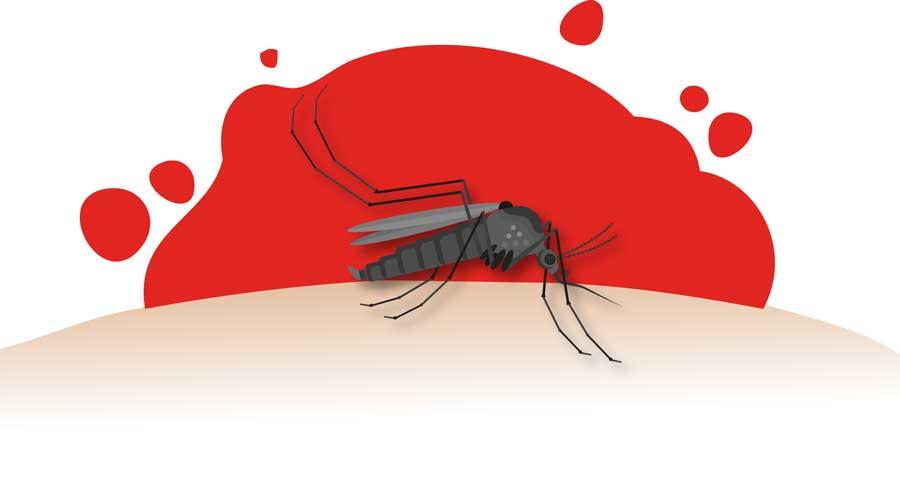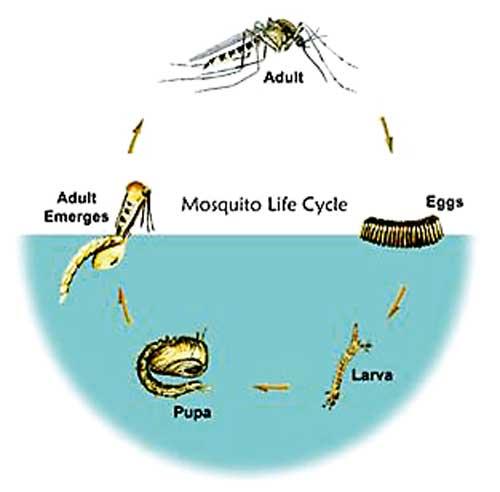08 Nov 2019 - {{hitsCtrl.values.hits}}

 These days we all need to protect ourselves from mosquito bites due to the prevailing dengue epidemic. Mosquitoes are carrying the disease causing parasites such as malaria, yellow fever, encephalitis etc. Feeding of blood is an essential part of the life cycle of most mosquito species. This provides the proteins which are necessary for egg production by female mosquitoes. Therefore, recently our society implemented different kinds of mosquito control methods. They are namely repellent and insecticides. However with these methods we can only control the mosquito in the short term since they have a quick life cycle and are resistant to most of the insecticides used. Other than environmental factors it has been reported that, when selecting a host, mosquitoes have a preference for certain individuals than others. Hence, most people have doubts about this. Hence let’s take a look at few factors that mosquitoes get attracted to.
These days we all need to protect ourselves from mosquito bites due to the prevailing dengue epidemic. Mosquitoes are carrying the disease causing parasites such as malaria, yellow fever, encephalitis etc. Feeding of blood is an essential part of the life cycle of most mosquito species. This provides the proteins which are necessary for egg production by female mosquitoes. Therefore, recently our society implemented different kinds of mosquito control methods. They are namely repellent and insecticides. However with these methods we can only control the mosquito in the short term since they have a quick life cycle and are resistant to most of the insecticides used. Other than environmental factors it has been reported that, when selecting a host, mosquitoes have a preference for certain individuals than others. Hence, most people have doubts about this. Hence let’s take a look at few factors that mosquitoes get attracted to.
Some species are evidently more attracted to pregnant women than normal
Mosquito life cycle
All mosquito species go through four different stages during their life cycle namely egg, larva, pupa and adult. The first three stages occur in water while the last stage ‘adult’ results in an active flying insect. Only the female mosquito bites and feeds on blood of humans or other animals. After that the female mosquito lays eggs directly on or near water, soil and at the base of some plants in places that may fill with water. The eggs have the ability to survive in dry conditions for a few months. The eggs hatch in water and a mosquito larva is born. The length of time to hatch depends on the temperature of water, food and type of mosquito. In the water the larva feeds and develops into pupa and it also lives in water, but no longer feeds. Finally, the pupa grows in to a mosquito after a period between two days and a week. The life cycle typically takes up to two weeks, but depending on conditions, it can range from four days to as long as a month. The adult mosquito comes onto the water surface and flies away,
Preferred environmental factors
The most prominent environmental factors preferred by mosquitoes are climate change and temperature of the land cover. Research studies reveal that in the areas where the presence of mosquitoes are high there has been a strong affect of land cover variables on these insects. Areas with high development were associated with the high numbers of mosquitoes. Studies have determined that the mosquito population increases with increased temperature and possibly decreases with increased precipitation.
Personal factors 
Different people respond in different ways to mosquito bites. According to research studies, the variability of mosquito attraction on humans depends on age, size, skin colour, metabolism rate, certain physiological changes (development of skin glands and other skin features that give variations in skin odour profile) and other factors including pregnancy in females.
Host odour
The combination of different kinds of compounds and concentrations stimulate the sensory organs of the mosquito including ammonia, lactic acids and other sweat compounds of the host. Carbon dioxide has also been reported as a prominent smell for mosquito attraction toward humans. Other than that foot odour plays a critical role in mosquito attraction and this is a main reason to have more mosquito bites on feet or ankles of humans. Whereas certain mosquito species have high affinity for our face due to our breath and sweat related compounds. Ammonia is emitted from the human skin as a microbial breakdown of excreted sweat products such as urea and nitrogen- rich compounds.
Other sweat compounds including indole, 3- Methyl- 1 – butanol, 6- methyl-5- hepten-2- one, geranyl acetone, 1-dodecanol, hexanedioic acid and certain amines are positively respond to the receptor neurons of mosquitos.
Skin microflora and parasites on host
Bacteria-like microorganisms in our body produce chemicals and odour due to microbial breakdown. Metabolites are responsible for a characteristic human olfactory signature. A specific group of bacteria has the ability to breakdown triglycerides on our skin to produce short and long form chain fatty acids that invite the mosquitos. Moreover these microorganisms produce a pungent smell which also has the affinity to attract mosquitos.
Furthermore, parasitic infection also can change individual’s odour by changing the composition of residential skin microbes and by affecting immunological and endocrine system. Therefore, it causes major changes in the sense of smell in mosquitos.
Moisture
Moisture influences mosquito behavior and it is discovered by recent studies. It shows that, grooved- peg receptor neurons in Aedes aegypti have been found to respond to water vapour.
Colour
Mosquitoes have certain preference on some dark colors; especially black and brown. Therefore, people believe that dark skin tone has high susceptibility to mosquito bite. But research studies discovered that skin tone does not significantly attract mosquito bites. However, wearing a dark (brown of black) color dresses will be a factor that attracts mosquitoes more since these insects have a high preference for dark colors.
Blood group
Some humans secrete substances of blood types on the skin. Substances of blood types are oligosaccharides. Research studies have found that people with Type O blood have twice as attractiveness to mosquitoes than those with Type A blood; Type B people; who were rated in the middle.
Pregnancy
Some species are evidently more attracted to pregnant women than normal. One study in Africa found that pregnant women are twice as attractive to malaria carrying mosquitoes as non-pregnant women. Researchers believe it is due to an increase in carbon dioxide that they found in women in late pregnancy exhaled 21% greater volume of breath than non-pregnant women. They also discovered that the abdomens of pregnant women were 1.26°F warmer, adding to the mosquitoes-like-warm-bodies component.
Body size
According to the some research findings, larger persons tend to attract more mosquitoes due to their greater relative heat or carbon dioxide production during their metabolic activities.
Gender
As mentioned in a recent research article, mosquitoes are more attracted to women than men due to the higher estrogen levels in women; which strongly attracts mosquitoes.
Some people are like magnets and attract mosquitoes despite living in a clean environment due to above mentioned factors.
The writer is a medical laboratory technologist at a private hospital and holds a MSc. Degree in Industrial and Environmental Chemistry from the University of Kelaniya and BSc. Food Production and Technology Management degree from the Wayamba University of Sri Lanka.
21 Dec 2024 21 Dec 2024
21 Dec 2024 21 Dec 2024
21 Dec 2024 21 Dec 2024
21 Dec 2024 21 Dec 2024
21 Dec 2024 21 Dec 2024